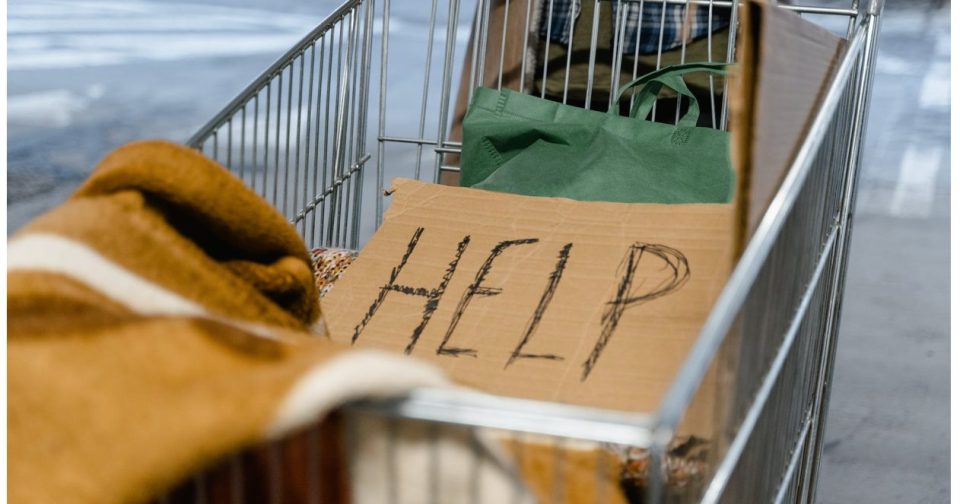Photo by MART PRODUCTION on Pexels.com
Government can’t fix homelessness. But that doesn’t stop them from trying. In the September 5th meeting of the Columbia City Council, Mayor Rickenmann and friends approved four resolutions to provide continuing services to the unhoused in Columbia.
These approvals engaged Lexington/Richland County Alcohol and Drug Abuse Council, Salvation Army, Midlands Housing Alliance for Rapid Shelter and Rapid Shelter Overflow, Rainy Day Fund, and the Housing First program administered by the University of South Carolina. All were recommended by the committee on Health, Social, and Environmental Affairs.
The City maintains an Affordable Housing Task Force that also makes recommendations. Among the members of that committee are representatives from Midlands Housing Trust Fund, Habitat for Humanity, More Justice, United Way, Columbia Housing Authority as well as Mungo Homes, Connelly Builders, and Coldwell Banker.
The task force has recommended a centralized effort to provide what Mayor Rickenmann calls 360-degree services: shelter, hygiene care, healthcare and rehabilitation, job counseling, even the DMV on hand to issue identification. The centralized site for these city-funded services will be Christ Central at 2018-A Main Street.
The current decentralized effort to assist the unhoused focuses primarily on providing meals and consists of a dozen different providers working in a variety of locations including Assembly Street across from the Richland Library, and Finley Park off Taylor Street behind the post office. Lately these decentralized service providers have reported harassment from City police and have made their case before the Council (August 15th and September 5th).
Speaking on behalf of Ericka Brown, organizer of the Be Kind Be Great pop-up feeding events, representatives from You Are the Power (YATP), a national activism organization, addressed the City’s efforts to discourage Brown’s work. Learn more here. Richland County libertarians were in attendance to support Brown and YATP at the August 15th meeting.
At issue is the City’s willingness to support some outreach efforts but not all. The task force has recommended service organizations alert the City to their efforts 24 hours prior to the event. The Council has discussed permits for providers—effectively asking the City government for permission to help fellow citizens.
Councilman Duval referred to the pop-up events as an “attractive nuisance” and said the events attract “the homeless to a single place” and then leave that place for the City to clean up.
But isn’t that what the City’s own Christ Central operation would do? Draw the homeless population (estimated at about 250) to a single place, assist them, and leave the City responsible for them?
If the City wants to address the myriad of problems that face our fellow citizens in the unhoused category, it can be proactive in several ways:
- Provide police support (instead of harassment) for pop-up events; securing the premises will ensure those helping and those being helped are not in danger.
- Provide City property for pop-up events; food trucks in the DHEC parking lot could become service providers rotating through dispersed City property around the area, reducing the distance between the unhoused and the providers.
- Provide City resources for clean-up after an event.
Ostensibly, the permit process would alert the City to the need to support the organizations with these services. If the organization doesn’t obtain a permit, they would not receive the City’s help. The question then becomes can the organizations serve anyway?
In a city where the government’s default response is a monopoly on care for the unhoused, “noncompliant” organizations are not welcome.
In addressing the Council, advocates suggested the City work with service providers and the Council agreed, then failed to organize that collaboration. Brown said she reached out to the Mayor’s office and received no response.
The YATP visitors also suggested a coalition of faith communities. The Council agreed to that, too, then didn’t organize that either.
Meanwhile, funding has been approved for the selected service organizations willing to participate in the City’s orchestrated efforts to centralize and control service to the unhoused.
Richland County Libertarian Party Chair Kasie Whitener spoke to the City Council on August 15th saying, “Government can’t fix homelessness. If it could, it would have. You need help from these organizations.” And yet the City continues to alienate and ignore them.
Three things the City Council can do right now to restore faith in its promise to collaborate with the decentralized efforts of private citizens and service providers:
- Organize meetings for faith communities and service providers to come together,
- Establish standard protocol for service providers around food safety, location safety, and clean-up, and
- Rally citizen advocates to the City’s efforts by being transparent about how the Task Force and committee on Health, Social, and Environmental Affairs come to their recommendations and what metrics they will use to determine efficacy.
Three things the service providers can do to reduce the nuisance perception:
- Show up for committee meetings and
- Publish a shared calendar of pop-up services and providers’ information, and
- Offer solutions for committees and Council to consider.
Simply being free to feed our fellow citizens is not enough. We must recognize the impact such efforts have on our community. Metrics can help leaders make better decisions regarding outreach and service. The City will gather the metrics it needs to make its case for centralization and control. Service providers should have their own evidence of impact and be able to share more than anecdotal evidence.
Moreover, Columbia should decide what kind of City it wants to be. Are we free and compassionate? Or are we controlled and contained?

